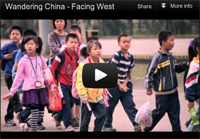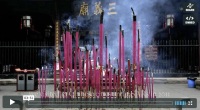By hook or by crook, this systemic dent has always impeded China’s full potential.
It has been one of its major Achilles heels since antiquity. That said and I argue again, it is not corruption that troubles, but the means of facilitating one’s ascent in contemporary Chinese society. One need to be a an increasingly big spender to afford an entourage. The entourage too has mouths to feed and the mouths are real. Desires are at a all fine high with advertising texts robbing Chinese skylines of their natural harmony with the environment – today feeding consumerism is the name of the game.
The one seeking ascendancy is no longer feeding an entourage of farmers from the village. The downstream effect that you have to be generous too their family to gain utmost trust is an expensive one in today’s terms.
A study of the major Chinese narratives and works of literature, right down to contemporary state sponsored Chinese-made TV today reveals much. It is an inherently deep Chinese lament. In the past when the Chinese echelons got corrupt and softened, foreign powers sat on their throne as recent as living memory.
Wang Qishan – man for the job to prevent this negative slide?
– – –
Why China’s Current Anti-Corruption Campaign is Different
By Russell Leigh Moses
Dean of Academics and Faculty at The Beijing Center for Chinese Studies
Source – Wall Street Journal China Realtime Report, published May 30, 2013
After witnessing previous campaigns against corruption fizzle out, or turn into an excuse for political backstabbing, the Chinese public might well be skeptical about President Xi Jinping’s latest attempt to rectify the Communist Party.
This present campaign, however, is beginning to look very different from the usual side-stepping that is done largely to impress the public.
And if reform-minded party cadres throw their support Mr. Xi’s way, it could turn into a broader effort to make the party more accountable.
Please click here to read the full article at the Wall Street Journal.
Filed under: 52 Unacceptable Practices, Beijing Consensus, Charm Offensive, China Dream, Chinese Model, Collectivism, Communications, Corruption, Domestic Growth, Education, Finance, Fu Er Dai 富二代, Government & Policy, Human Rights, Ideology, Influence, Infrastructure, Mapping Feelings, Modernisation, Peaceful Development, Politics, Population, Public Diplomacy, Reform, Social, Soft Power, Strategy, Tao Guang Yang Hui (韬光养晦), The Chinese Identity, Wall Street Journal











The Sharing Circle